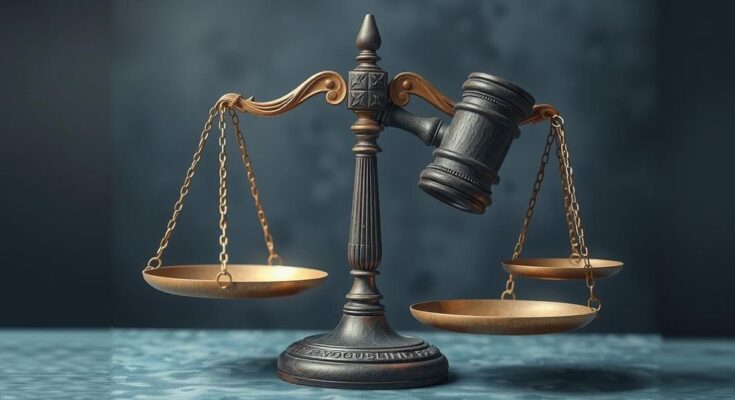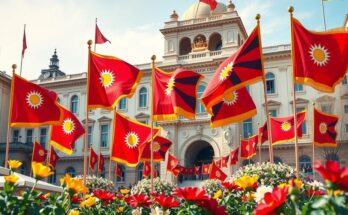In a significant shift within South Korea’s political landscape, the Constitutional Court reinstated Han Duck-soo as prime minister, overturning his impeachment. This ruling diverges sharply from the ongoing case of suspended President Yoon Suk Yeol, who was impeached in December for declaring martial law. The court’s ruling on Yoon’s situation is anticipated imminently, with public interest escalating.
The eight justices of the Constitutional Court offered varying opinions regarding Han’s impeachment. Ultimately, seven judges determined that the allegations against him—including failing to appoint judges to the Constitutional Court—did not meet the required constitutional grounds for dismissal. This case emphasizes the necessity of assessing each situation independently rather than drawing parallels.
Yoon’s case differs markedly, centring on his controversial martial law declaration, deemed a threat to human rights and democracy. According to the International Covenant on Civil and Political Rights, emergency measures can only be enacted during genuine national threats and must be justified, necessary, and temporary—criteria reportedly breached in Yoon’s actions.
Political tensions have surged amidst this impending verdict. Typically, the court resolves impeachment cases swiftly; the prior two rulings were delivered within two weeks post-trial. However, with Yoon’s trial concluding on February 25, analysts anticipated a decision by March 14, and delays have raised fears of furthering political strife.
Civil unrest has also escalated, as witnessed on January 19 when pro-Yoon demonstrators stormed the Seoul Western District Court following an extension of Yoon’s detention. Sixty-three individuals faced legal repercussions due to obstruction and property damage linked to the demonstrations. Amid growing violence and harassment targeting judicial officials, including the acting chief justice, the court’s independence is under threat.
As South Koreans await the Constitutional Court’s ruling, there lies hope for a decisive judgement that would reinforce human rights, uphold the rule of law, and safeguard the democratic framework of the nation.
The Constitutional Court reinstated Han Duck-soo as prime minister, overturning his impeachment, while President Yoon Suk Yeol’s case awaits judgement. Judges largely found no grounds for Han’s removal, contrasting with concerns over Yoon’s martial law declaration. Political tensions and civil unrest grow as South Koreans anticipate the court’s ruling, hoping it will affirm human rights and democratic institutions.
The Constitutional Court’s recent reinstatement of Han Duck-soo as prime minister and the imminent decision on President Yoon Suk Yeol highlight critical tensions in South Korean politics. Han’s case indicated a careful consideration of constitutional merits, while Yoon’s martial law declaration posed serious democratic threats. Rising political unrest and the judicial struggles underline the urgent need for clarity and fairness in the court’s imminent ruling, reinforcing South Korea’s commitment to democracy and the rule of law.
Original Source: www.hrw.org



